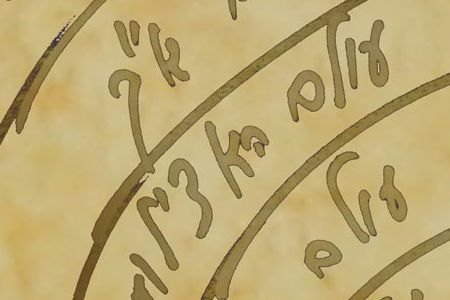Exodus, 6:2-9:35
This Week’s Torah Portion | Jan 19 – Jan 25, 2020 – 22 Tevet – 28 Tevet, 5780
In A Nutshell
In the portion, VaEra (And I Appeared), the Creator appears before Moses and promises to deliver the children of Israel from Egypt to the land of Canaan. Moses turns to the children of Israel but they do not listen “out of impatience and out of hard work” (Exodus 6:9). The Creator instructs Moses to turn to Pharaoh and ask him to let the children of Israel go out of Egypt. Moses fears that he will not succeed in his mission and asks the Creator for a token. The Creator says to Moses that he will be as God to Pharaoh, while Aaron will be as the prophet who does the actual speaking, and the Creator will harden Pharaoh’s heart and shower plenty of signs and tokens over Egypt. The Creator gives to Moses and Aaron a staff, and when Moses casts the staff to the ground it becomes a snake. When Moses and Aaron come to Pharaoh, Moses is eighty years old and Aaron is eighty-three. There are many magicians and soothsayers around Pharaoh. When Moses and Aaron arrive, they throw down the staff and it becomes a snake. Pharaoh’s magicians do the same and their staffs turn to snakes, as well, but Moses’ and Aaron’s snake swallows the magicians’ snakes. Despite that display, Pharaoh remains defiant. This is when the ten plagues of Egypt begin. This portion mentions seven of the plagues: blood, frogs, lice, flies, pestilence, boils, and hail. After each plague Pharaoh goes back on his word and refuses to let the children of Israel go. 
Commentary by Dr. Michael Laitman
While this depiction is graphic and picturesque, it actually conveys the interior of the Torah, the true law that instructs us how to get out of the Egypt within us. The Torah does not tell us to leave one physical place in favor of another, but rather how we can free ourselves of our egos.
The portion deals with a person who is working hard and discovers that he or she is in Egypt. It also deals with that person’s desire that does not agree with being in Egypt, the ego, the essence of evil. Therefore, that person escapes from there while arguing with one’s ego. Such a person cannot tolerate the ego, fearing it might bury or kill him. Therefore, that person rises above it and begins to part from it.
There are two forces in us. The first is the ego, which is Pharaoh and all of Egypt. The other is a “protruding” point called “the point in the heart.” All our desires that are in Egypt and are fed by it while there is a “famine in the land of Canaan” (Genesis, 42:6) create an internal struggle in us. This is the war from which we seek to escape, to rise above the ego with all our desires. In fact, only Moses, the point in the heart, escapes and rises above the ego, fleeing from Egypt to Jethro and to all that there is in Midian.
After forty years, during which we grow stronger in Midian working on enhancing the force of Moses, the Creator appears to us in the burning bush. Through our inner voice we hear and comprehend that we must return, fight against our ego, and get out of it, or we will not be able to attain spirituality. Continue reading “VaEra (And I Appeared) Parsha – Weekly Torah Portion”
